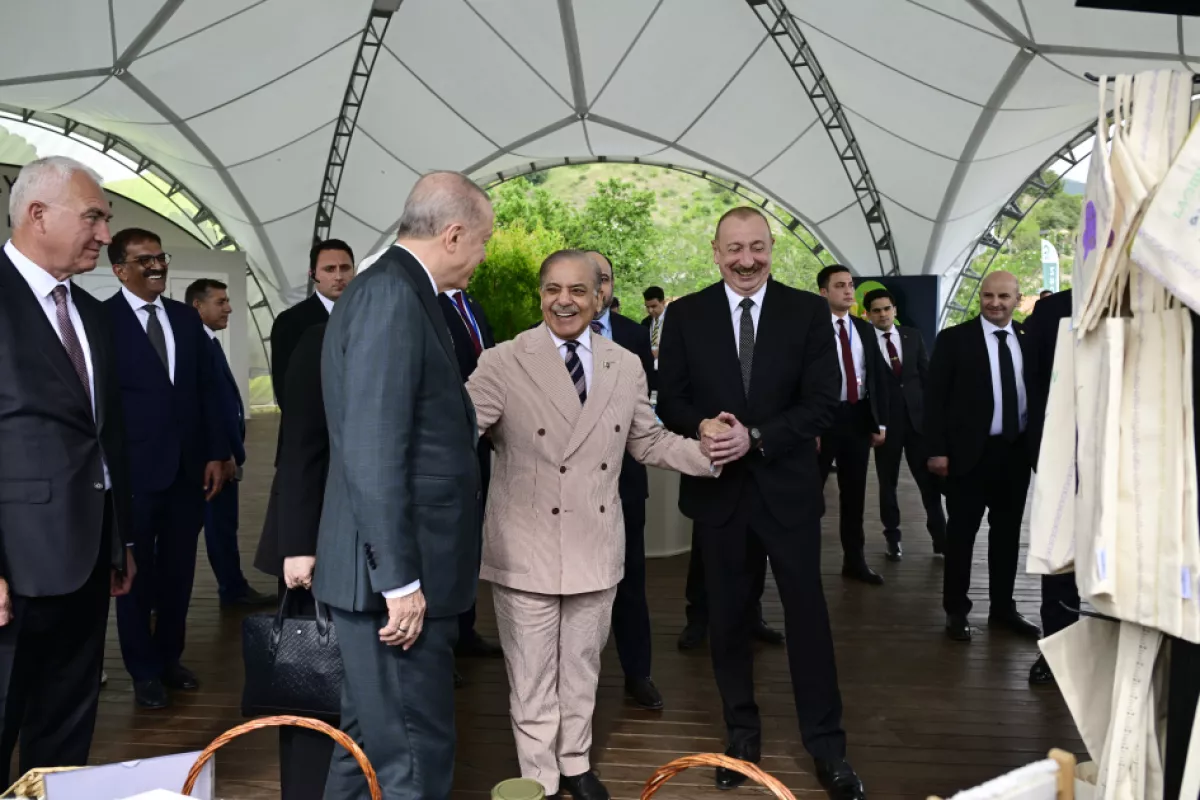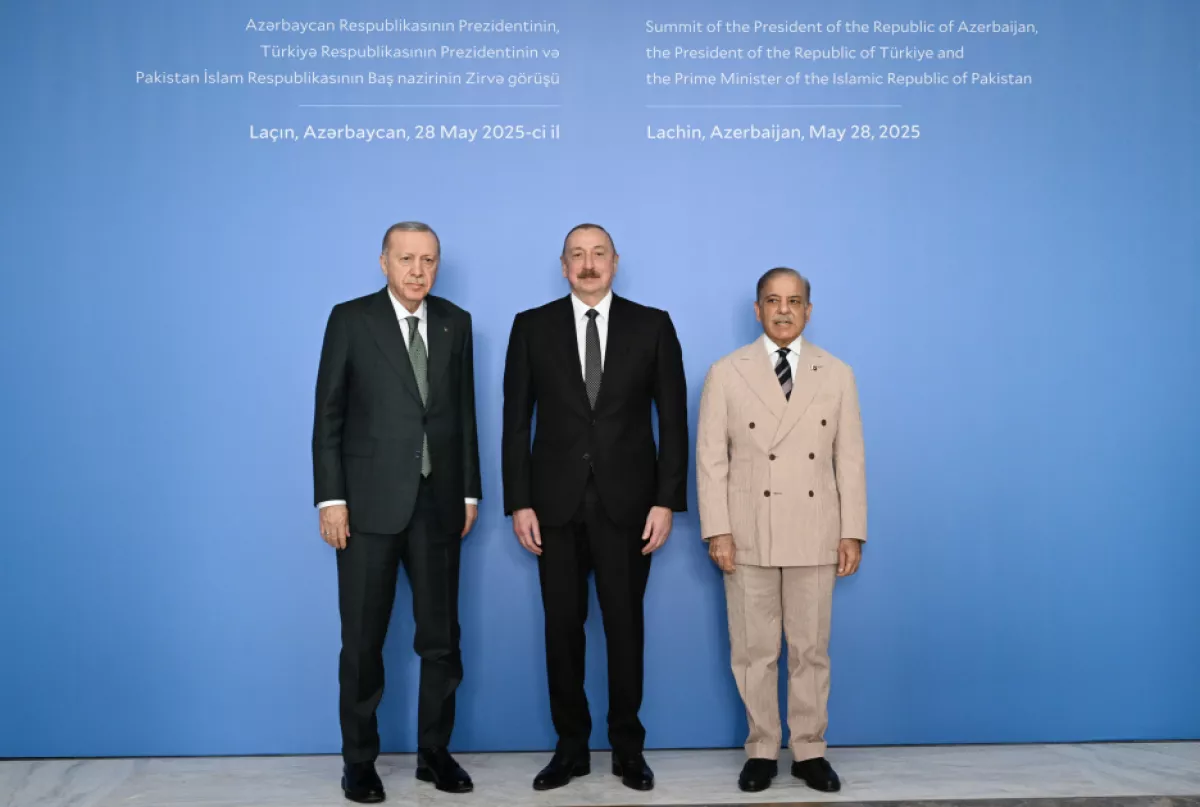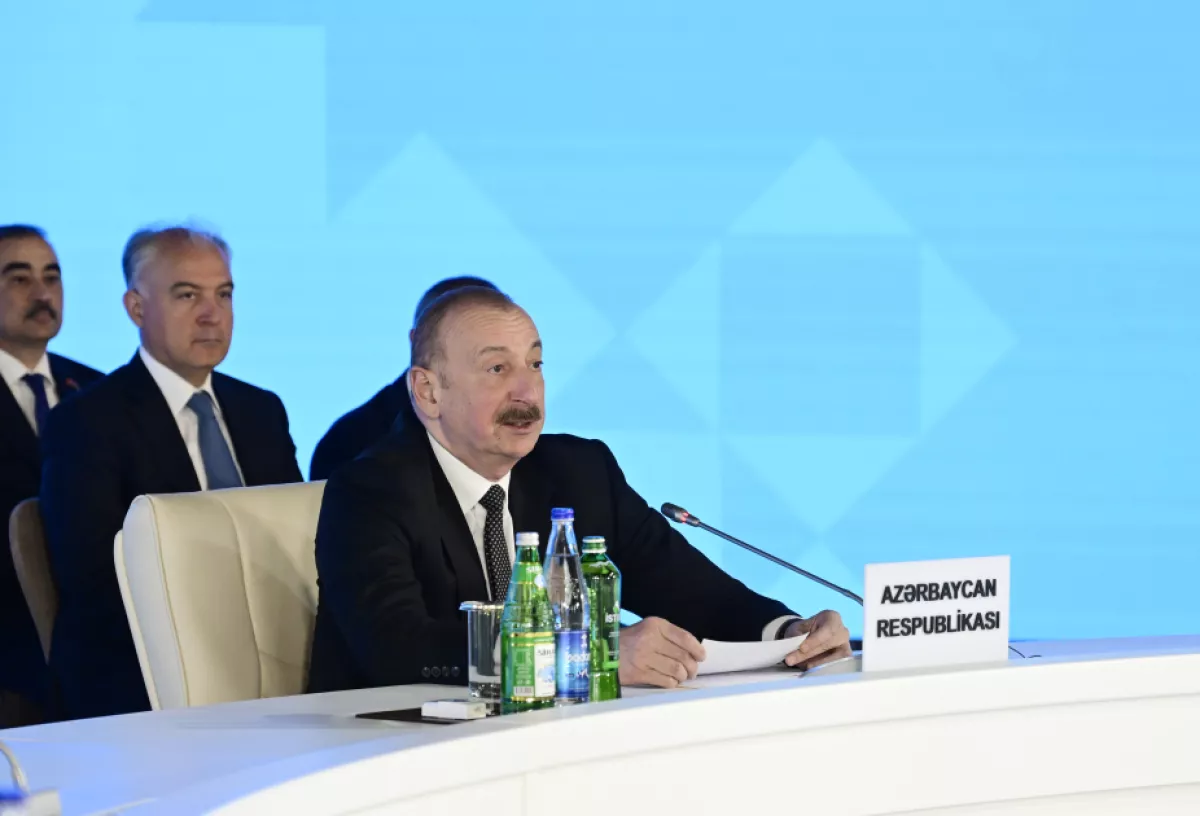Baku — Ankara — Islamabad axis and messages from Lachin From AI to space technologies
As usual during President Ilham Aliyev’s speeches, the statements he made on May 28 in Lachin within the framework of the second trilateral summit of the leaders of Azerbaijan, Türkiye (President Recep Tayyip Erdoğan), and Pakistan (Prime Minister Muhammad Shehbaz Sharif) can be seen as a message to interested parties.
However, perhaps the most important message to the world was the very fact that this summit took place during the opening of the international airport in Lachin. Namely, a demonstration of the creative potential of the Azerbaijani people. Just a few years after liberating their historic lands from occupation, Azerbaijan has achieved incredible success in developing them—moreover, through its own efforts. As a result, today Shusha, Khankendi, and Lachin have opened their doors for hosting major global forums, cultural and humanitarian events, and serious summits where the most important issues of planetary significance are discussed.

Overall, the current summit developed the main themes discussed at the previous one, held on the sidelines of the 24th meeting of the Council of Heads of State of the SCO. The primary focus then was on elevating the trilateral format of cooperation from parliamentary and ministerial levels to the level of state leadership, including deepening mutual understanding not only in economic matters (primarily the Middle Corridor) but also in military affairs.
In this context, yesterday’s assessment by President Ilham Aliyev of the roles of Ankara and Islamabad is viewed from the special angle of the political and moral support they provided during the 2020 Patriotic War. The subtlety lies in the head of state’s emphasis on the fact that Azerbaijan has always stood alongside Türkiye and Pakistan, followed by a declaration of the unity of the three countries and their peoples.
Thanks to this, “entirely new realities on a global scale” have been created, which was also reflected in the clear stance taken by Baku and Ankara during yet another armed confrontation initiated by India against Pakistan.
This can already be viewed through the prism of the geopolitical confrontation between the Azerbaijani-Pakistani-Turkish triangle and the Armenian-Indian duo. Although the latter duo often takes on the tone of a trio, considering the addition of Iran to the first two countries. However, many analysts believe that Armenia is most often the third voice in the India-Iran duo. Supporters of this view point to the agreement signed last year granting India a 10-year management of the Iranian port of Chabahar, which directly opens into the Indian Ocean. This allows them to regard this Iranian port as a kind of bridge between the Middle East and Eurasia, with prospects of “connecting” to the North-South Corridor, where Russian interests are already involved.
In other words, new actors come into clear view on this geopolitical track, including China, which is a key supplier to Pakistan’s defence sector, providing 82% of the country’s arms imports and accounting for 60% of China’s arms exports from 2022 to 2024. (Just a few weeks ago, the Indian military felt firsthand the power of Chinese equipment used by Pakistan.)

At the same time, within the framework of the “Belt and Road” initiative, China has a special format of relations with Pakistan, particularly through the port of Gwadar, which provides Beijing with access to the “oil-free” Strait of Hormuz, the Arabian Sea, and the Indian Ocean, with the prospect of gaining a “passage” to the Middle East and Africa upon completion of all infrastructure projects.
It is quite telling that after the 2023 visit of Pakistan’s Oil Minister to Baku, discussions included the possibility of Azerbaijan joining the existing investors (China and Saudi Arabia) in the construction of a refinery at Gwadar.
We should also remember the information that surfaced several months ago in various media outlets about potential Azerbaijani investments in highway projects in Pakistan, specifically along the Sukkur-Hyderabad and Hyderabad-Karachi routes, which are part of one of the branches of the Pakistan-China Economic Corridor.
In Lachin, President Ilham Aliyev announced Baku’s readiness to invest 2 billion US dollars in Pakistan’s economy. It is fair to agree that the data cited above confidently testify to the very strong mutual understanding between Beijing and Baku.
Here, we can also note Baku’s full support for Ankara’s actions in Syria and in the context of successes against the PKK terrorists.
Against this backdrop, President Ilham Aliyev paid special attention to the strategic position and dynamic economic potential of Baku, Islamabad, and Ankara. In this light, it is naturally highlighted that the countries of this triangle lie precisely along the ancient “Silk Road,” which confidently provides a powerful impetus for the economic integration of these states—at least within the framework of the Middle Corridor, the link between Asia and Europe.

Consequently, the political framework of cooperation between the three countries is strongly supported by the economic and energy components, alongside which the head of state highlighted other areas, including defence. This last emphasis briefly takes us back to 2021, when the “Three Brothers” military exercises were held.
In this context, the meetings held in Lachin between Azerbaijan’s Ministry of Defence and the heads of the military departments of Türkiye and Pakistan speak for themselves, as the parties discussed prospects for expanding defence cooperation, including increasing the intensity of joint exercises.
Yes, President Ilham Aliyev also highlighted yesterday the cooperation in areas such as artificial intelligence, digital innovation, space technologies, and others. However, given the current global situation, the economic and defence aspects stand out as the most significant.
In any case, the mutual understanding within the Pakistan-Türkiye-Azerbaijan triangle touches practically all spheres. At the same time, as emphasised by the head of state, the strength of this alliance is further enhanced by solidarity on international platforms and organisations. In this light, Baku, Islamabad, and Ankara are determined to continue strengthening their joint efforts within international organisations such as the UN, OIC, ECO, the Conference on Interaction and Confidence-Building Measures in Asia (CICA), and D-8.
In the context of the above, it can confidently be said that the specific messages delivered in Lachin are being carefully studied line by line by those to whom they were addressed. We hope the right conclusions will be drawn.








